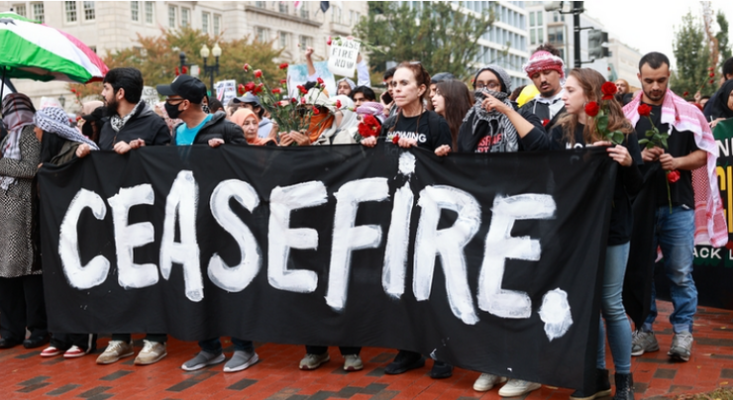 Pasadena’s Planning Commission is moving forward tonight with considering a new ordinance that would impose regulations on the private home short-term rental phenomenon which has rapidly grown to the point where over 600 Pasadena homeowners are now ostensibly in the “hospitality” business.
Pasadena’s Planning Commission is moving forward tonight with considering a new ordinance that would impose regulations on the private home short-term rental phenomenon which has rapidly grown to the point where over 600 Pasadena homeowners are now ostensibly in the “hospitality” business.
“The once niche market of short-term rentals has now significantly increased in Pasadena and the Greater Los Angeles Area,” a staff report by the City’s Planning Department said. “Short-term rentals can benefit those who operate them, their visitors, and also the cities that allow them by way of taxes and economic spinoffs.”
“However, left unregulated,” the same report said, “the short-term rental market could have negative impacts on the neighborhoods where short-term rentals are located and restrict the City’s limited housing supply for long term tenants.”
Thus the new proposed regulations.
Short-term rentals consist of home-sharing, where a unit is “shared,” in whole or part, and vacation rentals, where the unit is used exclusively for guests as a way of generating income. Perhaps the most widely-known organization in that industry is Airbnb is an online marketplace and hospitality service which has proven to be controversial in many cities.
“This is becoming an important part of our economy,” said 7th District Council member Andy Wilson, “and I think its important that we develop thoughtful regulations that allows (home sharing) to fit in with our communities responsibly, both in terms of protecting neighborhoods, but also so that visitors can take advantage of this service.”
Wilson pointed to the impact of the upcoming Arroyo Seco Weekend music festival, saying, “We need to have something in place, because I think that event might create a spike in Airbnb activity.”
Supporters of short-term rentals such as Airbnb credit the services with providing financial assistance during difficult financial times. In fact, the Planning Department reports shows that the average short-term rental income for hosts using Airbnb is $8,000 across California, thus enabling travelers to find a less expensive alternative to a hotel, and that short-term rental guests end up staying longer and spending more money in the communities in which they stay.
“We have always been in favor of regulations,” said Liana Enkelis, a photographer and founder of the Pasadena Home Sharing Network, who testified before the City Planning Commission on the subject last year.
“However,” she said, “there are some points to the regulations we are not in agreement with. Some seem overly restrictive. We’re concerned about having to have a permit and a license both. It seems like one or the other should be sufficient. We would also like the process to be as simply as possible. The less cumbersome the better. The easier it is, the more likely it is that there will be a high compliance.”
Enkelis added that there are a number of people who “aren’t aware that they are even doing short term rentals , like people who might rent a room out for the Rose Parade on Craigslist, and now there are going to be regulations about it.”
“If the City is planning to cast a wide net and include everyone,” Enkelis continued, “then they have to take into consideration all of the people who rent out rooms, and not just those are doing it formally, like on Airbnb. When those people hear that they have to have a permit, they’re not going to comply, but it doesn’t mean they’re not going to stop renting out a room.”
Critics, according to the Planning Department staff report, have argued that the short-term rentals adversely impact neighborhood character, reduce long-term housing options, increase rents, skirt health and safety regulations, and could potentially harm hospitality industry jobs and wages.
The new proposed regulations would establish a regulatory framework to allow home-sharing in one’s own primary residence, prohibit vacation rentals and other short-term rentals not covered by the City’s approved use definitions, establish various tools and administrative fines to enforce illegal short-term rentals, prohibit any person from advertising home-sharing that is not registered with the City, and require hosts to register with the City and remit Transient Occupancy Tax, which would, ostensibly turn home sharing rentals into veritable hotel rooms, with tax revenue going to the City’s general fund.
As of March 2017, approximately 644 properties in the City were being actively advertised, according to the Planning Department, and of those, approximately two-thirds were “entire dwelling units,” the remaining one-third were rooms inside of homes, spread throughout all districts in Pasadena.
The proposed regulations would allow home-sharing as a legal accessory use to a primary residence, but would prohibit vacation rentals, and any host interested in home-sharing would need to obtain a home-sharing permit.
According to the planning department recommendation, “the intent is to create a transparent application and registration process to encourage compliance and assist with enforcement.” Other key provisions of the short-term rental regulations would include an occupancy limit based on the size of homes—2 guests per bedroom plus 2 additional guests, and the homes cannot be used for any commercial parties or events.
The Planning & Community Development Department would establish an application and permitting process, and a home-sharing permit would then be obtained and renewed annually.
A City business license would be required and a person may have only one home-sharing property in the City. In addition, a person must reside at the residence for 9 months out of the year.
Short term rental hosts would also be required to remit Transient Occupancy Tax (TOT) to the City, and “a local responsible contact” person or property management company must be available 24 hours a day. In addition, home-sharing hosts will be required to keep records necessary to determine the amount of TOT liable for payment to the City, and must maintain liability insurance appropriate to cover the home-sharing use in the amount of $500,000.
Following the scheduled series of of meetings, the Planning Department will present its findings and recommendations to the full City Council for a vote.














 0 comments
0 comments


